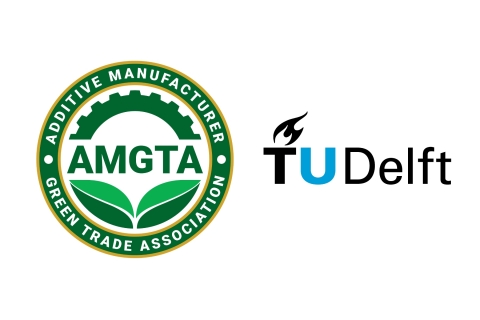AMGTA Publishes First Research Paper on Sustainability in Additive Manufacturing
Systematic review highlights importance of component end use, need for more research

Hollywood, Fla., United States:
The Additive Manufacturer Green Trade Association (AMGTA), a global trade group created to foster and promote the environmental benefits of additive manufacturing (AM), announced today the publication of its first commissioned university research project, a literature-based systematic review of the environmental benefits of metal AM. The paper, titled, “State of Knowledge on the Environmental Impacts of Metal Additive Manufacturing” was written by Dr. Jeremy Faludi from Delft University of Technology and Corrie Van Sice from Dartmouth College.
According to its authors, the report “synthesizes existing academic literature comparing the environmental impacts of metal AM with conventional manufacturing methods, and provides context with impacts of common metals and processing methods found in a materials database.” Its goal “is to summarize current knowledge and identify areas where information is sparse, unclear, and much needed.” The full paper is available to AMGTA member companies, other industry stakeholders, and the general public on the AMGTA website at: https://www.amgta.org/resources/.
Key takeaways from the report include that, while “AM generally has much higher carbon footprints per kg of material processed than CM [conventional manufacturing] when considering the direct manufacturing process itself”, but “impacts depend greatly on part geometry—a solid cube will be much lower impact to produce by machining, while a hollow shell or lattice can be lower impact to produce by AM.” The report further recognizes the need for additional life cycle assessment (LCA) studies to quantify environmental impacts: “More LCA studies are necessary to definitively compare metal AM to CM; especially direct comparisons of AM to machining, and especially for technologies such as binder jetting and DED. These LCAs should ideally also include more of the product life cycle.”
“We were pleased to work with Dr. Faludi and Ms. Van Sice on this study,” said Sherry Handel, the Executive Director of the AMGTA. “No one should expect metal AM to be a more sustainable way to manufacture basic metal parts given the focused energy inherent in laser melting, but AM should present a more sustainable course for manufacturing finished precision components.” Ms. Handel continued, “These findings validate the AMGTA’s plans to provide the industry with rigorous, independent, and ongoing research. The AMGTA will continue to commission studies and publish research findings in an effort to update the industry and other key stakeholders on what our eco-footprint is now and what we will need to focus on in the future to be more sustainable.”
Disclaimer: This content is distributed by Business Wire India.

